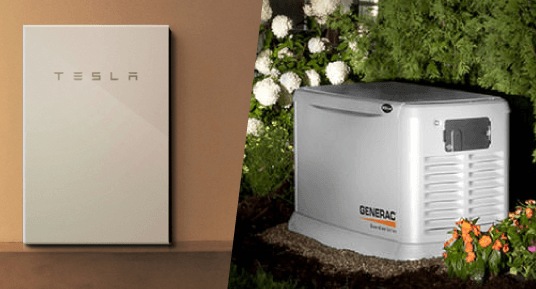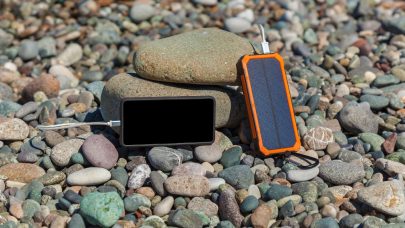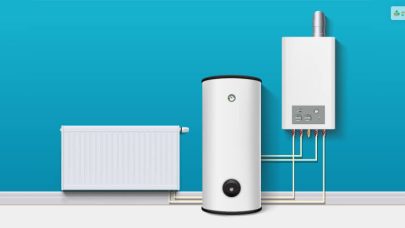The continuing wildfires in California and portions of the northwest, alongside the volatile hurricane season in the southeast, made 2020 a year of reckoning in the battle against climate change.
Although you may not live in a natural disaster hotspot, you have undoubtedly experienced a power outage. It may be because of a storm or a vehicle colliding with a neighborhood utility pole, and the lights go out!
While looking for candles and flashlights, you, like most of us, consider your home’s energy resiliency. The pandemic, on the other hand, is a game-changer in this regard.
With 64% of paid US employees working from home, there is a more considerable demand for home battery backup than ever for dependable residential electricity. So, let’s take a look at how it works.
What Is A Home Battery Backup?
Whole-home battery backup requires access to all of your home’s circuits, allowing you to choose which appliances to power during a power loss. Many factors can influence these selections, including lifestyle requirements, time of year, solar power system, battery capacity, and battery charge condition.
When electricity enters a home through the main electrical panel, it flows through circuits that govern the current going to our appliances, phones, computers, and everything else that uses energy.
A battery, which can take up where the grid ends off so that everything from your freezer to your Wi-Fi continues to function normally, is no easy task. That is where the battery backup for the home comes to the rescue.
When it comes to measuring how much power you truly need during an emergency, most homeowners realize that a whole-house rechargeable battery may not be essential.
Configuring a machine with partial backup, which enables adjustable energy management, could be a good solution for a home battery backup. In this case, homeowners have more options when it comes to preparing backup plans. Battery backup for household appliances is a wise location to start an energy audit.
How Does A Home Battery Backup Work?
Only qualified electricians install home battery storage systems, which link directly to a home’s electrical network. The battery charges itself by collecting electricity from the grid or, more typically, from the solar panels. Then, it conserves the energy to be used during a power failure or when the solar PV system starts to shut down for the night.
When a home battery backup is set to emergency mode, and the electricity goes out, it can light a home for around 24 hours. It is based on the scale of the battery and how much extra power is utilized during the blackout.
However, during a prolonged power cut, the battery will eventually exhaust itself, which is why most household batteries are combined with solar power batteries.
That’s because the battery can continually recharge while collecting electricity from the sun while the grid is down. Thus, the combination of solar power and energy storage is a formidable energy resilience solution for battery storage homes.
Benefits Of Home Battery Backup
Home battery backup systems have skyrocketed in terms of popularity. But are they popular just because they provide clean power during a power failure, or are there more to them? A backup battery for home is popular due to several other reasons such as;
Eco-Friendly
One significant advantage of home battery backup over generators is that there is no need for fuel. Generators rely on a plentiful fuel supply and contribute to greenhouse gas emissions. Aside from their environmental effect, generators are also extremely noisy engines that require maintenance after extended periods of operation.
A home battery backup system will either draw electricity from the grid or, when combined with solar, it will form a clean energy microgrid that recharges daily by collecting energy from the sun. Because of their dependability, microgrids are becoming a more frequent alternative for supplying electricity to residences in off-grid scenarios.
Lifetime Savings
Some states provide subsidies to homeowners that purchase home battery backup systems. Creating incentives for citizens to switch from gas-powered generators to electricity solutions aids in the fight against climate change and the achievement of state sustainability goals.
On the federal level, the investment tax credit, which is still in place for residential PV until 2022, provides a rebate for energy storage technologies used in conjunction with solar.
Although the initial investment might be substantial, it is critical to consider the long-term benefits of a home backup battery. Solar, for example, may save the average household between $10 and $30K in power expenditures over the life of their system.
What Are The Best Home Battery Backup Systems?
|
Categories |
Names |
Description |
| Best Overall | Tesla Powerwall | Both its solar panels and solar tiles come with 25 years warranty period. It is more than just a home battery backup because it can charge your electric vehicle and keep your AC running even during power cuts. |
| Best System For Installation | Panasonic EverVolt | You can monitor details like battery consumption and battery usage with its online app. It is suitable only for indoor installation but can also integrate itself with an external generator. |
| Best Budget | Jackery Solar Generator | This home battery backup is like a mini generator that6 stores energy to run critical appliances during a power cut. It charges from 0%-80% in 4 hours and costs only $2,699. |
| Best Portable Generator | Goal Zero 6000X | You can charge this home battery even using a car power outlet in a few minutes. Apart from the fast-charging ports, the wheels make it easy to move this backup battery around anywhere. |
FAQs
Battery back up for home is a relevant subject of today’s era because the pandemic and so many instances of climate change have taught us one thing: power cut is still possible in the 21st century. So, we have accumulated a few questions here that can further guide you in this process, such as;
1: Is Battery Backup Worth It?
Ans: A home battery backup is definitely worth it because power outage is pretty standard even in the 21st century. So, if you need to charge your phone or work on your computer when the power is out, you can do so with a backup battery.
2: How Much Does Home Battery Backup Cost?
Ans: For a medium-sized household, a home battery backup system will cost around $10,000-$20,000. At the same time, a fuel-powered generator will cost about $7,000-$15,000. But, if you compare these two, a home battery backup will be good for long-term savings and eco-friendly.
3: How Long Do Home Battery Backups Last?
Ans: If your home battery backup is programmed for emergency purposes, it will last for 24 hours, at least when the power is out. It depends on the size of the battery and also depends on how much energy is being used during the power outage.
Conclusion
There are several home battery backup power supply systems we have talked about in this article. We have shared details on how they work, their benefits, and the best backup battery systems in the market at present. If you want to know more about them, you can let us know in the comment box, and we will get back to you.
Read Also:














